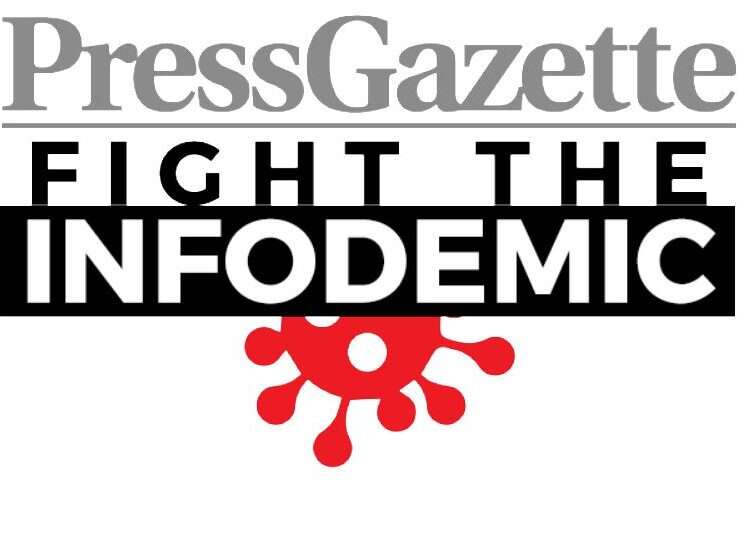
Facebook is today launching a campaign to help users identify fake news as the social media giant comes under increased pressure to deal with misinformation spreading on its platforms.
In collaboration with London-based fact-checking service Full Fact, the US tech giant will be running adverts across the UK, Europe, Africa, the Middle East and Turkey in support of the project next month. It has also launched the campaign information page stampoutfalsenews.com.
The spread of coronavirus conspiracies on Facebook – as well as Facebook-owned platforms Instagram and Whatsapp – has cranked up pressure on the firm to deal with misinformation. Earlier in June, Press Gazette launched a campaign, Fight The Infodemic, calling on social media firms to do more to stamp out Covid-19 falsehoods.
Facebook has also been coming under pressure from politicians across the world, many of whom are pushing for the firm to face more regulation, and advertisers, who are pulling marketing spend from the platform in the wake of its handling of recent controversial posts.
Facebook said the new campaign adverts to run on its platform aim to advise users on how to spot false news and question what they read. The firm said it will encourage its users to ask the questions: “Where’s it from? What’s missing? How did you feel?”
Steve Hatch, Facebook’s vice president for Northern Europe, said: “With so many ways to consume the news, it can be difficult to make informed choices about what to read, trust and share.
“This campaign is about asking people three simple questions to help them challenge the information they are reading so they can be more informed.”
Full Fact chief executive Will Moy said: “It’s vital that everyone receives clear, factual information about coronavirus. Bad information ruins lives. Like many other fact checkers around the world, Full Fact has been working to tackle bad information since the start of the pandemic. But you don’t need to be a fact checker to spot misleading content online.
“People should ask themselves three simple questions about anything they read online. Where’s it from? What’s missing? And how does it make you feel? Emotive content can be more likely to persuade you into believing false news. During this health crisis lives are at stake.
“By taking a moment before sharing something online, people can stop the spread of harmful and misleading information and protect their friends and families.”
Email pged@pressgazette.co.uk to point out mistakes, provide story tips or send in a letter for publication on our "Letters Page" blog
